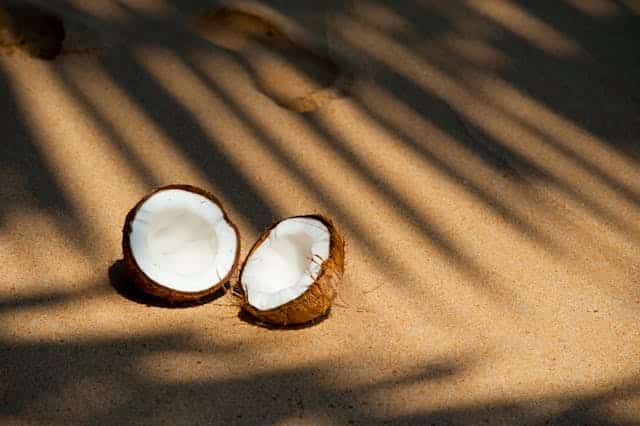The carnivore diet is strict, austere, and meat-focused. But in the search for energy and variety, one question remains: Can you eat coconut on a carnivore diet?
Coconut is often praised for its healthy fats and versatility. But does it fit into a plan that relies only on animal-based foods?
In this article, we’ll explain everything you need to know—from nutrition to different diet versions—to help you decide.
What Is the Carnivore Diet?
The carnivore diet is an all-animal diet. People following it eat meat, fish, eggs, and sometimes dairy. It does not include plant foods, grains, legumes, or fruits.
It’s popular for many reasons:
- Reduces inflammation
- Supports weight loss
- Improves digestion
- Clears skin and mental fog
It’s also used for autoimmune conditions and gut healing. However, to be effective, it often requires strict adherence.
So, Where Does Coconut Fit In?
Coconut is a plant-based food. It grows on trees. That alone creates a conflict.
Strict carnivore diet followers do not eat plant products, including herbs, oils, or fiber sources—even if they’re considered healthy elsewhere.
So the simple answer for purists is no—coconut is not allowed.
But the real world isn’t always black and white.
The Nutritional Profile of Coconut
Let’s look at what coconut offers per 100 grams:
- Calories: 354
- Fat: 33g
- Carbs: 15g
- Fiber: 9g
- Sugar: 6g
- Protein: 3g
Coconut is rich in medium-chain triglycerides (MCTs), a type of fat that the body burns quickly. Low-carb and keto communities often use MCTs to boost energy.
Despite these benefits, coconut’s plant origin disqualifies it in a strict carnivore plan.
The Carnivore Diet Spectrum
Not everyone follows the carnivore diet the same way. Some do it strictly, while others adopt a more flexible approach.
1. Strict Carnivore
Only animal products are consumed. This version does not allow coconut in any form.
2. Ketovore
A mix of keto and carnivore. Allows some low-carb plant foods like coconut oil and spices.
3. Animal-Based Diet
This version, promoted by Dr. Paul Saladino, allows fruit, honey, and certain plant fats. Coconut may be included here.
Which version you follow determines whether coconut is acceptable or not.
Forms of Coconut: Are Some Better?
Coconut comes in many forms. Some are higher in carbs and fiber than others.
Coconut Oil
Pure fat, no carbs or protein. It is often used in keto and sometimes in keto diets. It may be tolerated in relaxed carnivore versions.
MCT Oil (from Coconut)
Extracted from coconut oil, it contains only medium-chain fats. It is popular in bulletproof coffee and is often accepted by flexible carnivores.
Shredded Coconut
High in fiber and plant sugar. Not carnivore-approved.
Coconut Milk
It has water, sugar, and plant solids. Not suitable for carnivore diets.
If you’re going to experiment, coconut oil or MCT oil are the most likely to fit in.
Why Some People Include Coconut
Some carnivore dieters include coconut for specific reasons:
- The energy boost from MCTs
- For cooking purposes, when animal fat is unavailable
- Transitioning from keto or paleo to carnivore
- Personal preferences or cravings
These users often do not follow a strict elimination approach. They use coconut in moderation and monitor their body’s response.
Risks of Adding Coconut to Carnivore
Including coconut comes with some drawbacks:
- May interfere with gut healing in sensitive individuals
- It contains fiber, which carnivore avoids for digestive rest
- Adds plant toxins and allergens
- Can delay adaptation to fat-burning mode
- Triggers cravings for other non-carnivore foods
If you’re eating carnivores for healing or elimination, avoiding coconut entirely is best.
Expert Opinions on Coconut and Carnivore
Not all experts agree on coconut’s place in the carnivore lifestyle.
Dr. Shawn Baker, a key figure in the carnivore movement, advocates strict animal-only eating and discourages plant oils and fats.
Dr. Paul Saladino takes a different approach. He allows coconut as part of his “animal-based” model, which includes fruits and honey.
What’s clear is that coconuts don’t belong in the strictest version of the diet. But some flexibility may work for others.
Can Coconut Break Ketosis?
Not all forms of coconut are equal in this regard.
Coconut oil and MCT oil are high in fat and contain no carbs. They support ketosis and may even increase ketone levels.
Shredded coconut and coconut milk contain carbs. These can break ketosis if eaten in larger amounts.
If your goal is to stay in ketosis, stick with pure oils. But avoiding all coconut is safest if your goal is elimination or healing.
Better Carnivore-Friendly Fats
If you want to increase fat without coconut, try these:
- Beef tallow
- Duck fat
- Ghee (if dairy is tolerated)
- Suet
- Egg yolks
- Bone marrow
These are fully animal-based and support both energy and nutrition needs.
Coconut and Digestive Issues
Carnivore diets are known for improving digestion. Many people come to this diet after struggling with bloating, gas, or IBS.
Coconut’s fiber content and plant compounds can reintroduce these problems. For sensitive individuals, even small amounts can disrupt gut healing.
That’s another reason many choose to stay strict and avoid coconut altogether.
Who Should Avoid Coconut on the Carnivore Diet?
You should avoid coconut if:
- You’re on an elimination protocol
- You have autoimmune issues
- You’re trying to heal digestive problems
- You are not yet adapted to fat metabolism
- You experience inflammation after eating coconut
Your body will tell you if coconut is helping or harming you. Listen to the signs.
Who Might Tolerate Coconut?
Some people can tolerate small amounts of coconut, especially oils.
You might tolerate it if:
- You’re metabolically flexible
- You use it rarely and in small doses
- You’re transitioning from another diet
- You are not using Carnivore for medical reasons
Again, individual goals and biofeedback matter most.
Final Thoughts
So, can you eat coconut on a carnivore diet? Here’s the honest answer:
Strict carnivore? No. Coconut is a plant, and the diet excludes all plant foods.
Flexible or ketovore? Maybe. Coconut oil or MCT oil may be used in small amounts.
Your goals should guide your decision. If you aim for gut healing, stick with meat, water, and salt. If you’re more relaxed, test and see what your body allows.







